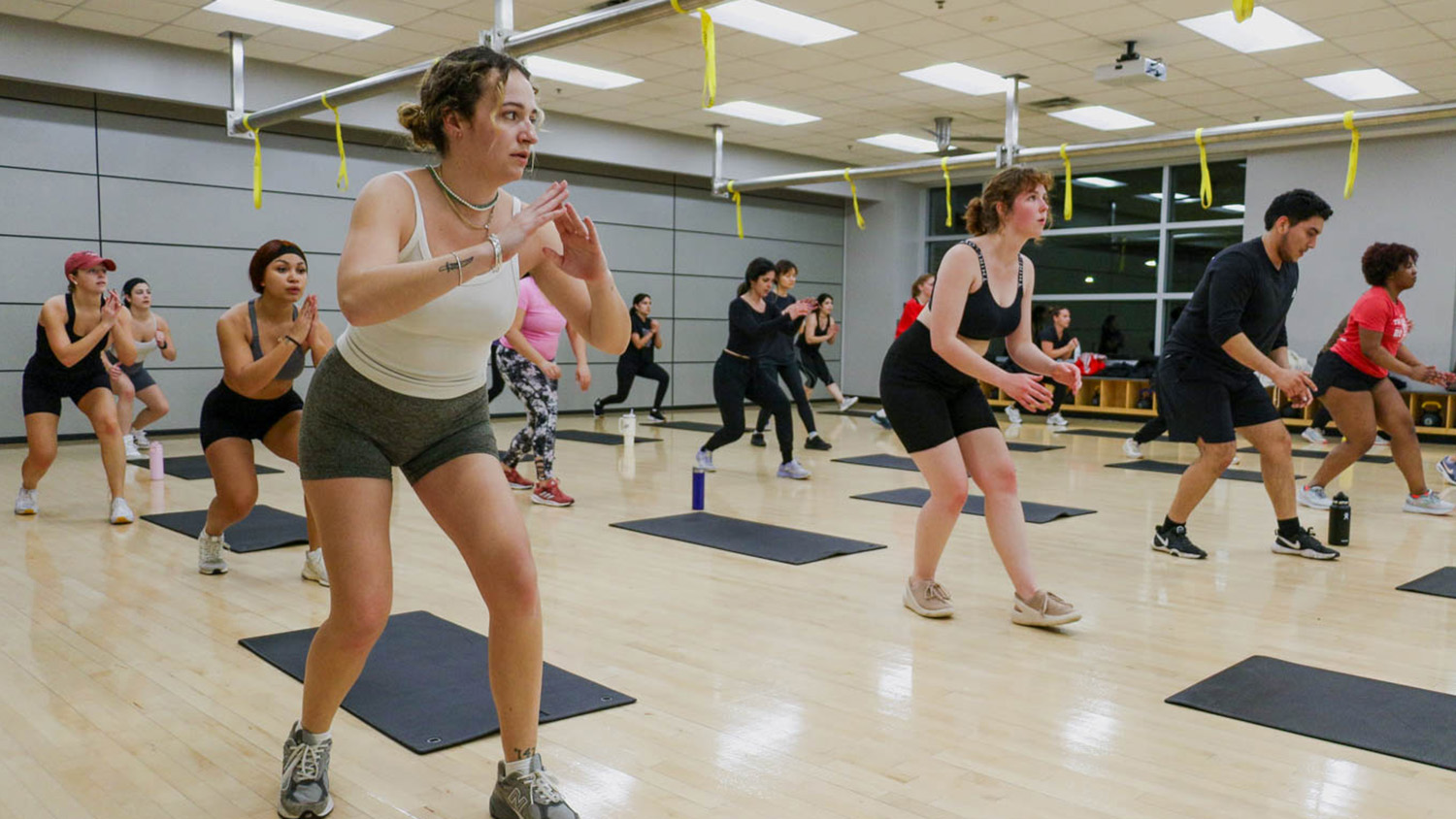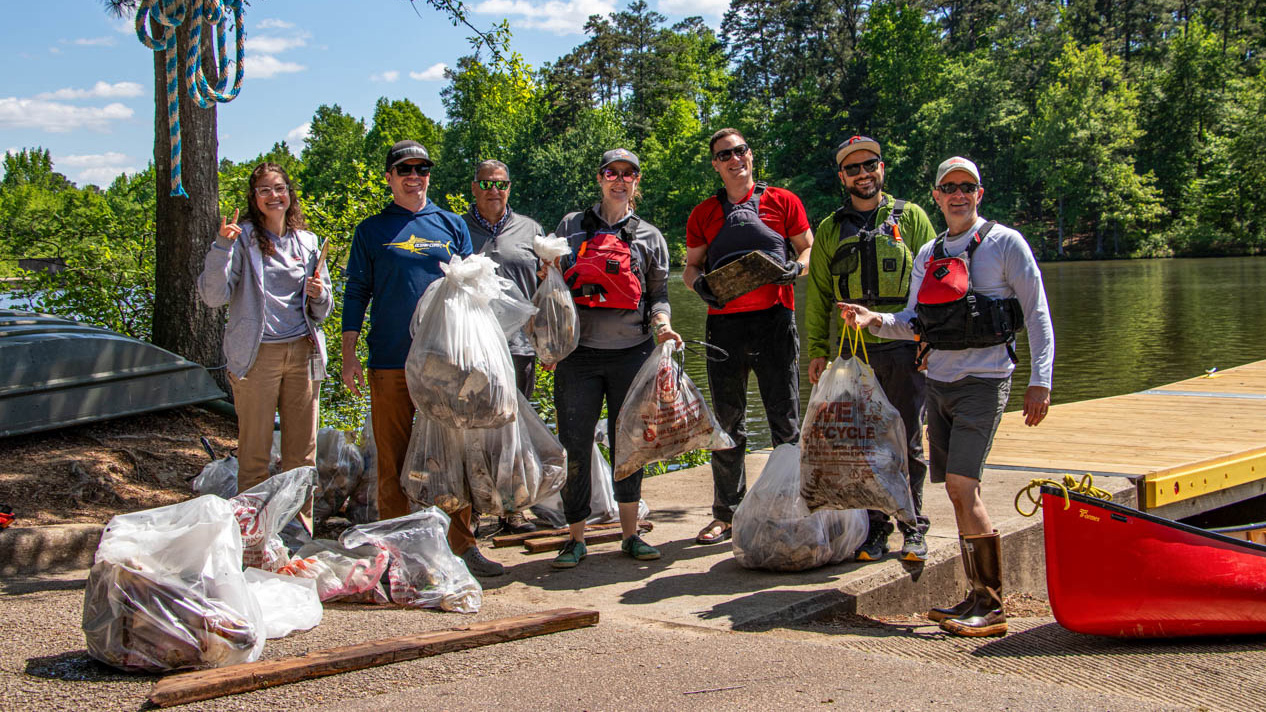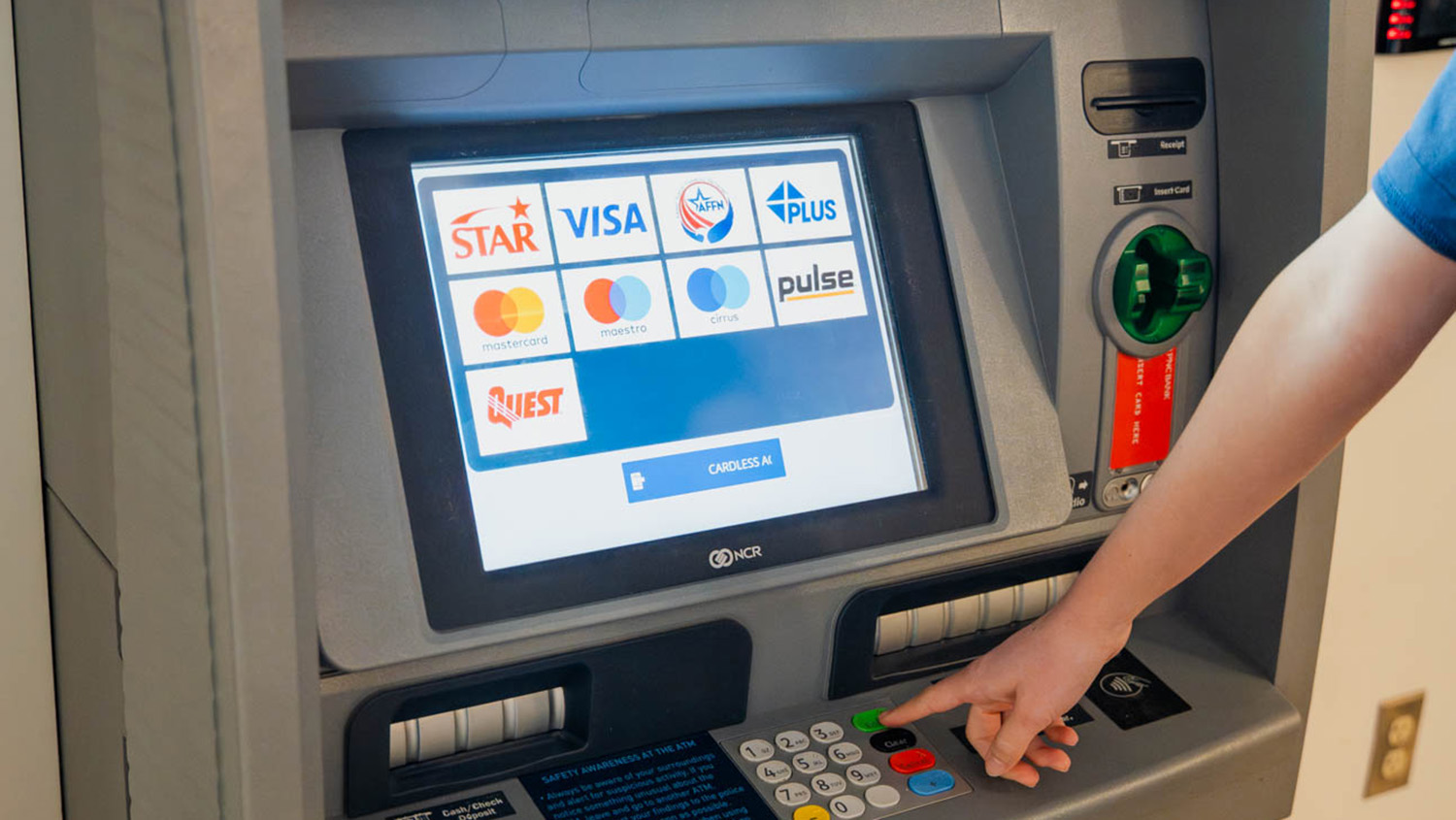Pack Peers Ready to Continue Promoting Healthy Choices
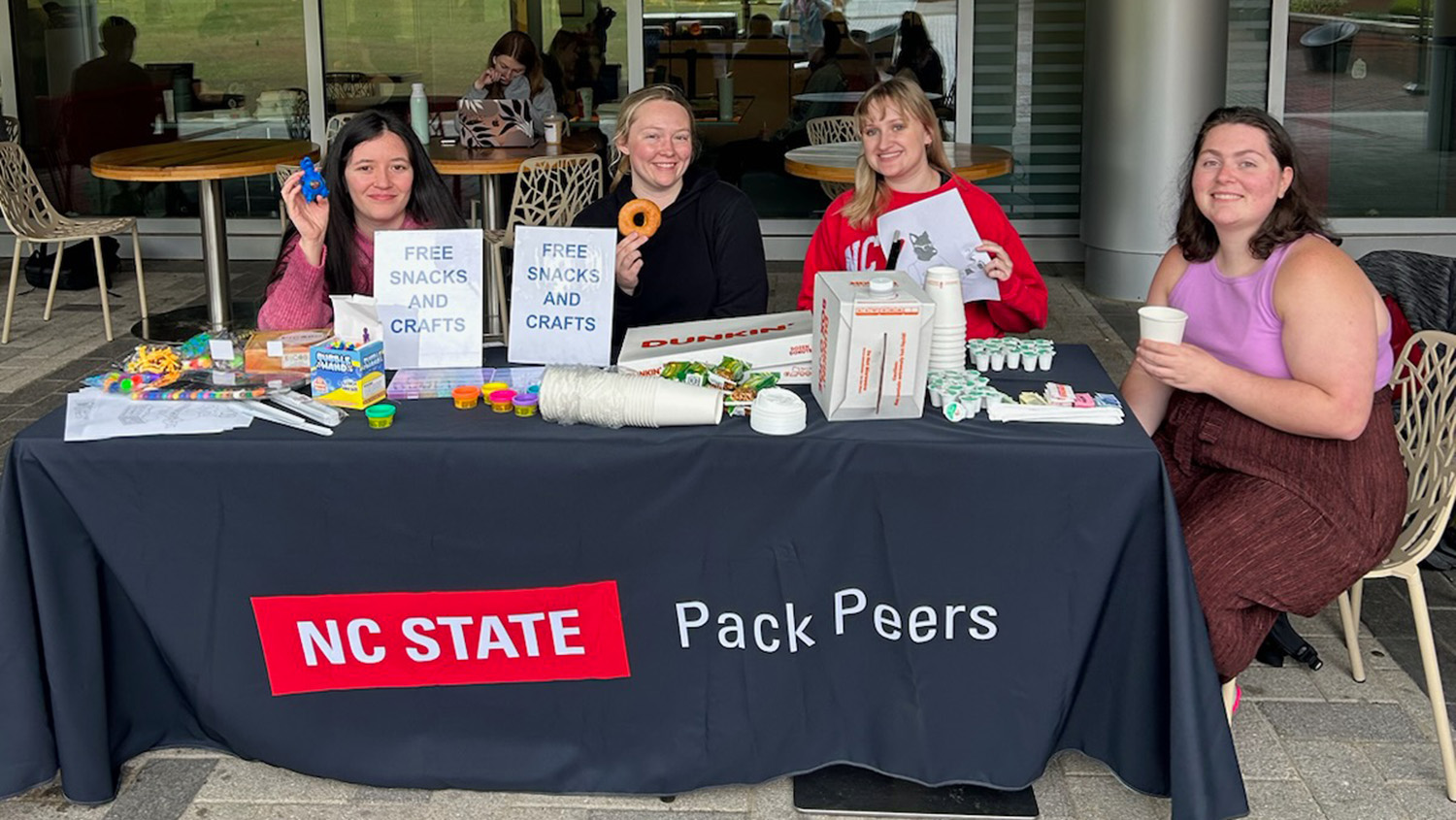
During the 2024-25 school year, NC State students will once again have the opportunity to gain valuable leadership skills and promote healthy choices for their peers.
After returning to campus last fall, the Pack Peers program, under the leadership of Campus Health Educator Daniel Passonno, will again be offered this year.
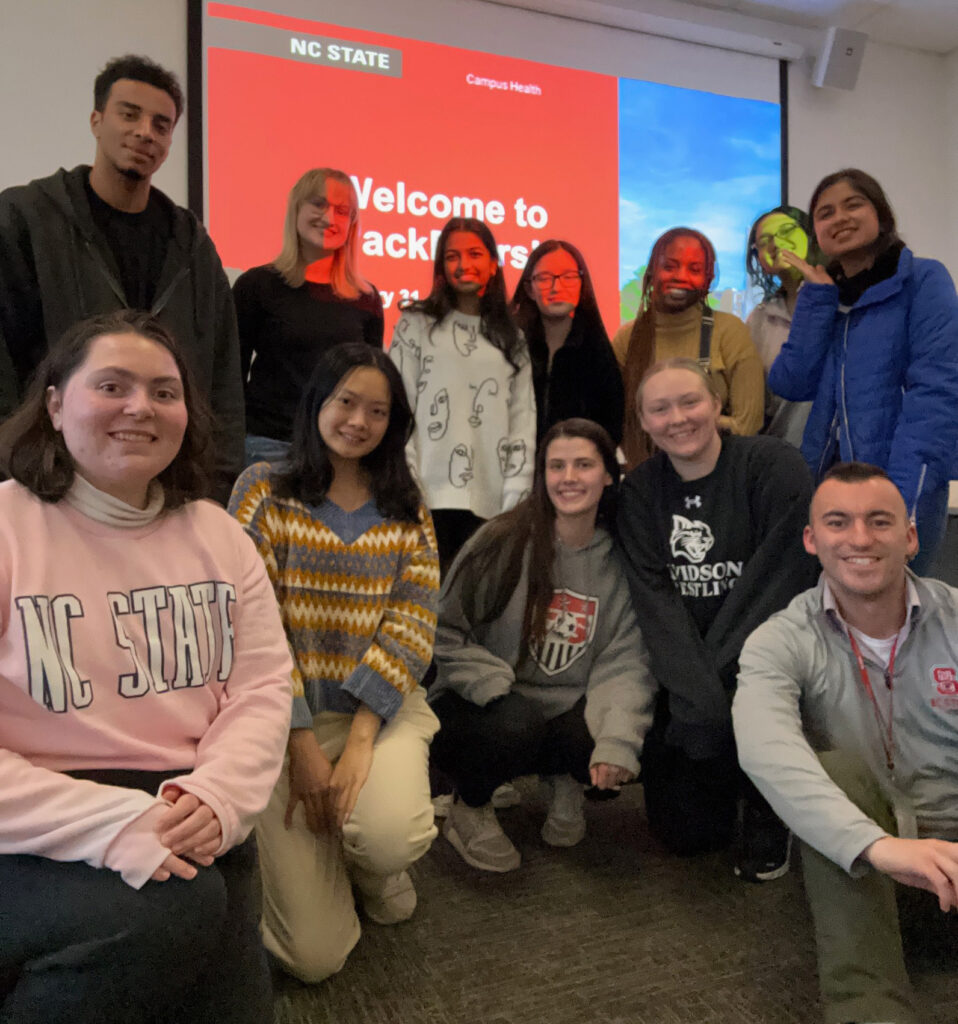
“Students are able to gain valuable communication, leadership, teamwork and other skills and become certified peer educators through NASPA (National Association of Student Personnel Administrators)” Passonno, Advisor of the Pack Peers, said. “They get hands-on experience planning and implementing a variety of wellness events, helping out with different outreaches and ultimately promoting healthy behaviors for the campus community.”
Throughout the school year, members of the Pack Peers program will help educate their fellow students about health and wellness topics such as alcohol and other drugs, sexual health, stress management, healthy sleep, self-care, healthy habits and general wellness through assisting with outreach, planning programs and events, facilitating workshops and connecting peers to necessary resources.
“I really enjoy working with like-minded individuals alongside Campus Health, and this role has allowed me to contribute meaningfully towards a healthier NC State,” said Ananya Venkatachalam, a third-year student studying microbiology. “Ultimately, Pack Peers has given me a supportive and enriching environment where I can pursue my passions while learning from others.”
The peer educators have assisted with several events, including Southern Smash during Eating Disorders Awareness Month, Safer Spring Break Fair, and initiatives around Wellness Day and De-Stress Fest during finals week.
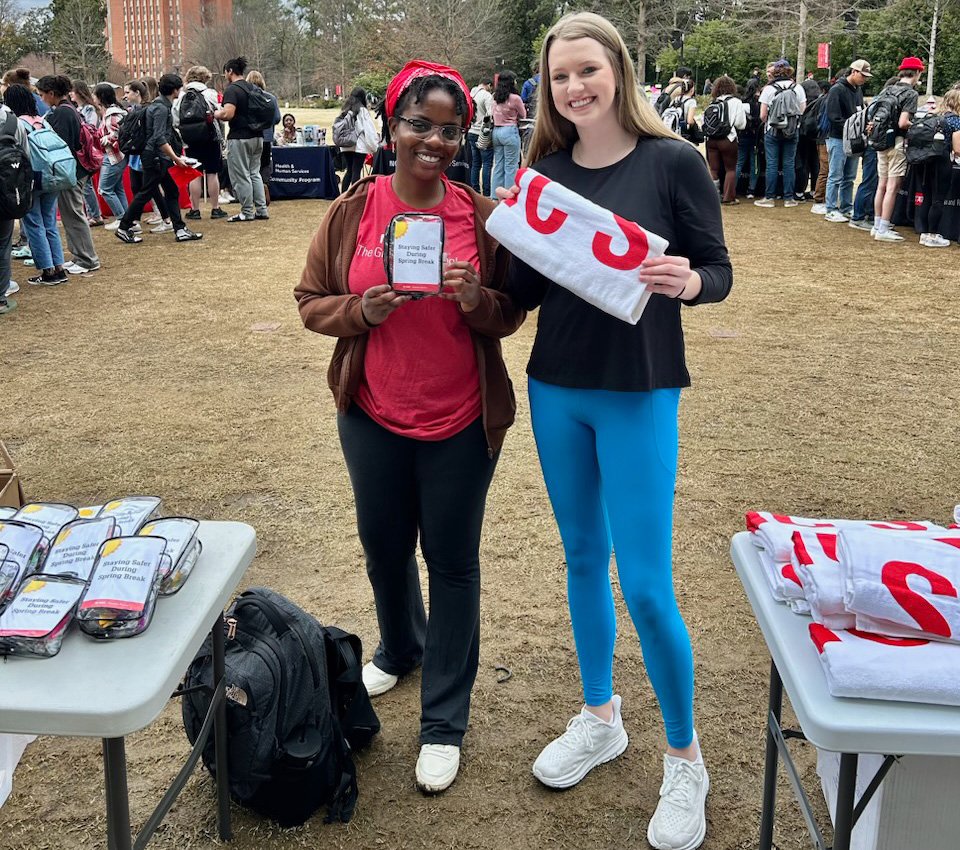
Pack Peers students’ responsibilities include planning and implementing health promotion programs and initiatives, attending biweekly peer educator meetings (every other Wednesday from 4:30-5:30 p.m.), representing Campus Health at various events and educating the campus community on a wide range of health topics.
“Pack Peers has been a great opportunity to connect my interests in health promotion with a population that really needs it, college students,” said Ore Badejoh, a graduate student studying applied social psychology. “As a college student, it can be difficult to not only know that resources are available to you, but also know how to take care of your body and mind.”
Peers are more relatable and approachable on these topics compared to faculty and staff.
Passonno explained that there are peer education programs at college campuses all over the country, and they are evidence-based in promoting health-enhancing behaviors for students at their campuses. In addition, there are other peer educator groups on campus, such as the Mental Health Ambassadors with Prevention Services and the Movement Peer Educators with the Women’s Center. Students can connect more with their peers on the topics covered.
“I think that it is very impactful when peers educate peers,” Passonno said. “College-age students are more likely to connect and listen to their peers since they are more comfortable talking with peers when it comes to sensitive issues such as their health and well-being. Peers are more relatable and approachable on these topics compared to faculty and staff and have the opportunity to have informal conversations about their well-being.”
Applications to join this year’s Pack Peers program are due Sept. 6 at noon, and the program is open to undergraduate and graduate students from all majors.
- Categories:
